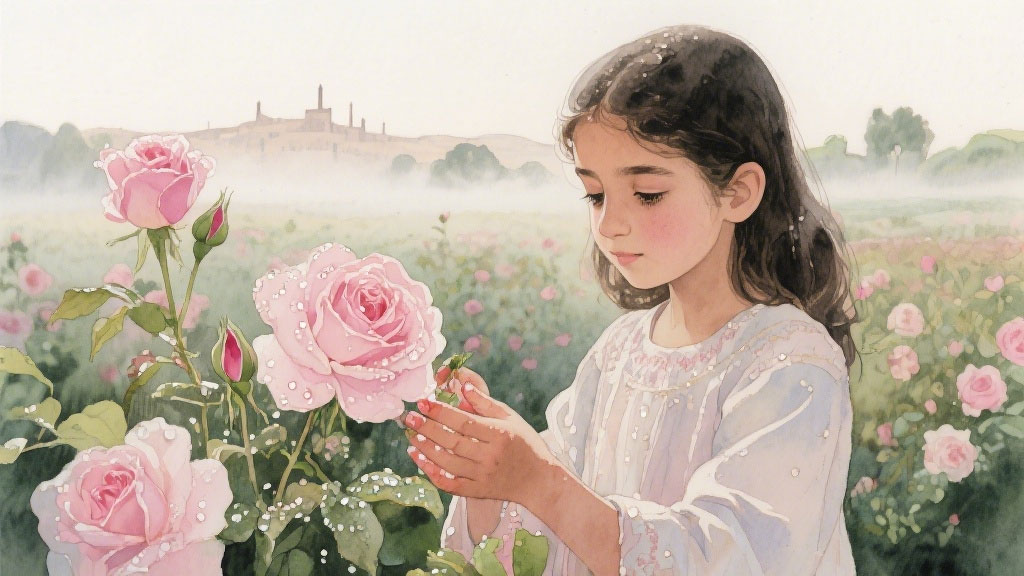+86-13516938893
Menu
global purchase

In the rose valley outside Kashan, fourteen-year-old Laila completed her first solo early morning harvest. Dew still clung to the petals as pink juice stained her fingertips—a hue more translucent than any rouge.
"Pluck by twisting along the stem," Grandmother's voice always echoed in the morning light, "as gently as a Persian dancer swirling her skirt." Laila remembered her grandmother's wrinkled hand wrapping around hers, teaching her to identify the plumpest buds. These chosen roses would be sent to the distillery the same day, to be extracted into rose hydrosol that could last a full year.
Every April during the Rose Festival, the entire valley hung heavy with sweet fragrance. Laila loved watching the copper pots in the distillery exhale white mist, steam condensing into pearls on the cooling pipes, then dripping into crystal bottles with a tinkling sound. Grandfather said this sound held Persia's secrets—three thousand years ago, such distillation furnaces stood in Cyrus the Great's gardens, their rose scents traveling with caravans across deserts, gifting the Silk Road with sweetness.
That year spring arrived unusually late, and cold currents frostbitten half the buds. Laila watched Grandmother carefully gather the damaged petals, tucking them into earthen jars to pickle with salt. "Roses never waste their fragrance," Grandmother stirred the petals with a silver spoon, "just as we never waste life's gifts." Those preserved roses later became jam, spread on freshly baked naan—their sweet-tart flavor let Laila recall spring sunshine even on winter nights.
At eighteen, Laila left for university in Tehran. The night before departure, Grandmother placed a bottle of amber-hued rose essential oil in her suitcase. "When you face difficulties, smell this," the old woman's thin fingers caressed the bottle, "it's Kashan's sunshine and soil keeping you company."
Amid the city's bustle, Laila would twist open the bottle late at night. Whenever that sweet aroma touched her nose, she'd envision Grandmother's headscarf fluttering like butterfly wings across the flowers in the valley's morning mist, while she herself stepped barefoot on dewy grass, thorns pricking her ankles with fleeting pain.
That summer after graduation, Laila returned to the rose valley. The distillery's copper pots still hummed, though now tended by young artisans. She found Grandmother among the flowers, sitting on a small stool sorting petals, silver hair interwoven with pink roses in the wind.
"This year's essential oil is exceptional," Grandmother handed her a small bottle, "sweeter than the year you were born."
Laila bent to sniff it. The fragrance held sunshine, soil, and the taste of years. Suddenly she understood why Persians say roses are Allah's sighs left on earth—each blooming flower is time whispering softly, telling eternal tales of heritage and love.